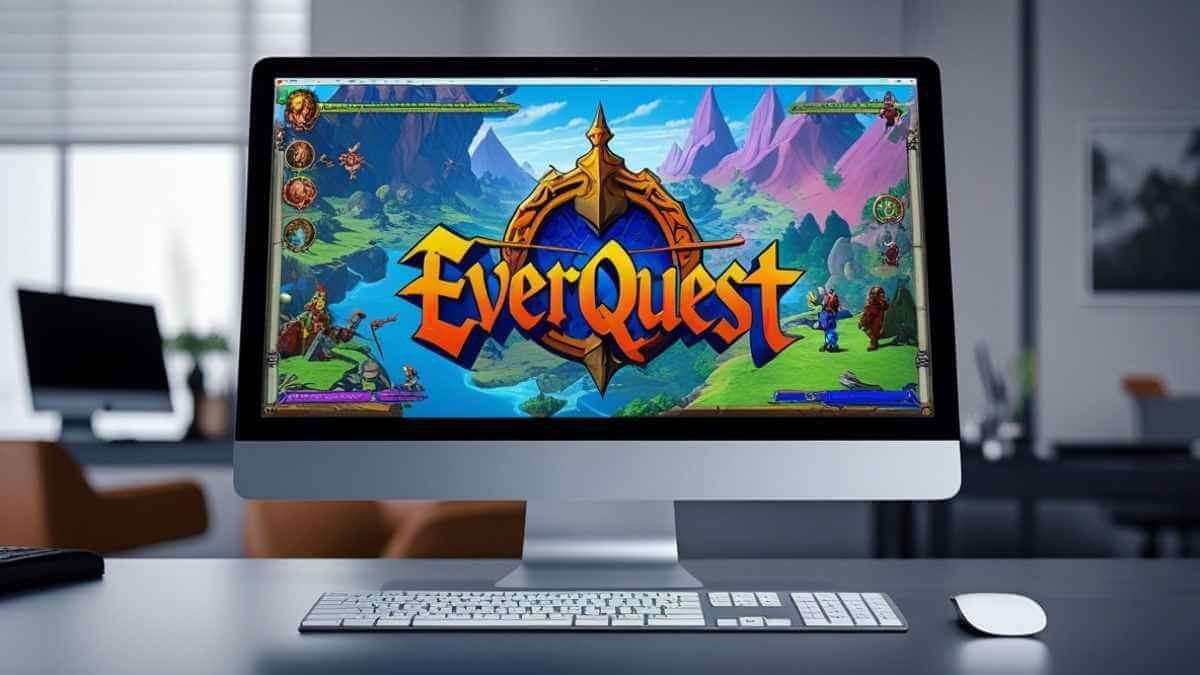EverQuest Mac: The Complete Guide to Playing the Classic MMORPG on Modern Apple Computers

EverQuest remains one of the most influential massively multiplayer online role-playing games (MMORPGs) in gaming history. Since its launch in 1999, it has attracted generations of players seeking epic quests, dynamic social experiences, and a living fantasy world. However, for Mac users the journey has been anything but straightforward. The term EverQuest Mac carries a special meaning: it reflects the unique history of the official Mac client, the passionate community that kept the dream alive, and the present-day solutions for playing this iconic title on modern Apple hardware. This guide explores the origins of EverQuest Mac, the challenges faced by Apple gamers, and the practical ways to enjoy EverQuest on today’s macOS systems.
The Rise and Fall of the Original EverQuest Mac Client
When EverQuest first captured the imagination of PC gamers, Apple enthusiasts longed for their own version. Their wish came true with the launch of a dedicated Mac client known as “EQMac”, which connected players to a special server called Al’Kabor. This client was tailored for the Mac environment of the early 2000s, using PowerPC architecture and the classic Mac OS framework. For years, Al’Kabor became a home for a tight-knit community of adventurers who preferred the Apple ecosystem.
The Mac server offered an experience that diverged from the fast-paced updates of the Windows version. Content was essentially locked at the Planes of Power expansion era, giving players a snapshot of EverQuest’s early days. This nostalgic limitation attracted fans who sought a more old-school challenge and a slower, more deliberate style of play. Unfortunately, as technology advanced and Apple shifted to Intel processors, maintaining the ageing PowerPC-based client became increasingly difficult. In November 2013, Sony Online Entertainment officially closed the Al’Kabor server, bringing the original EverQuest Mac era to a close.
The Community Revival: The Al’Kabor Project
The end of the official server might have been the end of the story, but the EverQuest Mac community refused to let their beloved world fade. Enthusiasts launched the Al’Kabor Project (often abbreviated as TAKP), an emulation project designed to faithfully recreate the original EQMac experience. TAKP preserves the Planes of Power-locked environment and the mechanics of the classic Mac client, allowing both Mac and Windows players to relive the game as it was in the early 2000s.
This project has grown into a vibrant community-driven effort, with developers and volunteers working tirelessly to maintain accuracy and stability. For many, TAKP is the spiritual successor to the official EverQuest Mac. It captures the slower, more strategic gameplay that defined EverQuest’s early years, with a dedicated player base that appreciates the nostalgia and challenge. The Al’Kabor Project demonstrates the power of a passionate gaming community: even when official support ends, the spirit of the game can endure.
Playing Modern Live EverQuest on macOS
While TAKP provides a classic snapshot of EverQuest history, some Mac users want to experience the current live version of the game, complete with all the latest expansions and content updates. Daybreak Game Company, which now manages EverQuest, has never released a modern macOS client. Yet determined players have found several reliable ways to run the Windows version on Apple computers.
CrossOver by CodeWeavers
Among the most popular solutions is CrossOver, a commercial compatibility layer based on the open-source Wine project. CrossOver translates Windows’ DirectX calls into macOS graphics using technologies such as Vulkan and Metal. This means you can install and run EverQuest without setting up a full copy of Windows. Many Apple Silicon users report that CrossOver provides excellent performance, often better than virtual machines, and requires less overhead.
CrossOver’s appeal lies in its simplicity. After installing the software, you create a Windows environment, install the EverQuest client, and log in. Because it does not require an entire Windows installation, it saves disk space and reduces complexity. For M-series Mac users in particular, CrossOver has become the go-to method for playing live EverQuest.
Parallels Desktop Virtual Machine
Parallels Desktop offers another approach: running a full Windows operating system in a virtual machine. This method works well on Intel-based Macs and can also function on Apple Silicon models using Windows on ARM with x86 emulation. Parallels allows you to switch seamlessly between macOS and Windows, giving you the flexibility of a dual environment.
However, there are trade-offs. Some players experience lower frame rates or occasional instability, especially when using the x86 emulation required on M-series Macs. In addition, some EverQuest community posts caution that running the game in a virtual machine may violate the terms of service. Players should review the latest official policies before committing to this approach.
Boot Camp for Intel Macs
For those with older Intel-based Macs, Boot Camp provides a more direct solution. Boot Camp allows you to install Windows alongside macOS and choose which system to boot at startup. This method runs Windows natively on the Mac hardware, delivering performance nearly identical to a dedicated Windows PC. Many EverQuest players used this method successfully for years. The limitation is clear: Boot Camp is unavailable on Apple Silicon Macs, so newer machines must use CrossOver or Parallels instead.
Apple’s Game Porting Toolkit and Wine Wrappers
Apple’s recent Game Porting Toolkit has generated excitement among Mac gamers because it aims to make running Windows games easier. Some players have experimented with using this toolkit to play EverQuest, but results have been mixed. While it shows promise, EverQuest’s unique requirements mean that success is not guaranteed. Similarly, open-source Wine wrappers can sometimes work, but they often require more technical skill and patience than CrossOver.
Comparing the Options for Mac Players
Each method for running EverQuest on a Mac comes with advantages and limitations. CrossOver stands out for its balance of performance and ease of use. Parallels provides the familiarity of a full Windows environment but may suffer from performance issues, especially on Apple Silicon. Boot Camp offers the best performance for Intel Macs but is no longer an option for newer hardware. The Game Porting Toolkit and Wine wrappers are promising but less reliable for those who want a straightforward setup.
For players seeking the authentic early 2000s experience, the Al’Kabor Project remains unmatched. It captures the essence of EverQuest Mac as it was originally played and maintains an active and welcoming community. For those who crave the latest expansions and modern gameplay, CrossOver currently provides the smoothest path.
Tips for a Successful Mac EverQuest Experience
To maximise your enjoyment of EverQuest on macOS, consider a few practical tips:
Hardware readiness: Ensure your Mac meets the recommended specifications for the method you choose. For Apple Silicon users, an M1 or newer chip and ample RAM will deliver the best results.
Graphics settings: Adjust in-game graphics settings to match your chosen method. Running in a virtual machine may require lowering some settings for stable performance.
Backup your files: Whether using CrossOver or Parallels, keep regular backups of your EverQuest installation and character data.
Stay informed: Community forums and discussion boards are valuable sources of advice and troubleshooting tips. As Apple and Daybreak update their software, new compatibility tweaks often emerge.
Conclusion
The story of EverQuest Mac is a testament to the resilience of both a game and its community. From the original Al’Kabor server that gave Mac users a unique portal into Norrath, to the community-driven Al’Kabor Project and the ingenious methods for running Live EverQuest on modern Apple machines, the journey has been remarkable. Today’s Mac players can choose between reliving the nostalgic Planes of Power era or venturing into the ever-expanding world of Live EverQuest. Whether you opt for CrossOver, Parallels, Boot Camp, or experimental tools like the Game Porting Toolkit, one thing is clear: the magic of EverQuest remains alive and accessible, even on the latest Mac computers.



